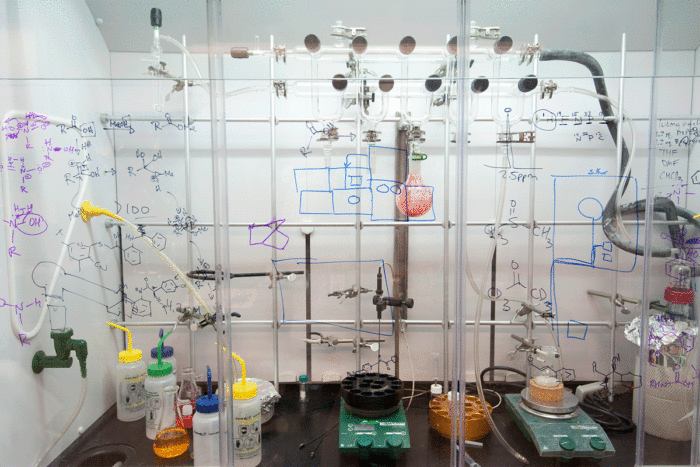Bear Cub Challenge awards $225,000 to five research teams
Funding helps scientists become entrepreneurs
 Robert Boston
Robert BostonWashington University's Skandalaris Center for Interdisciplinary Innovation and Entrepreneurship, the Institute of Clinical and Translational Sciences and the Center for Drug Discovery together have awarded Bear Cub grants totaling $225,000 to five teams at the university.
Investigators developing new drugs, technologies or diagnostic tests often have trouble finding funding to demonstrate the commercial feasibility of their research. Federal funding usually doesn’t cover such proof-of-concept projects. To fill that void, the university’s Bear Cub Challenge awards help researchers make the leap from bench scientists to budding entrepreneurs.
The Skandalaris Center for Interdisciplinary Innovation and Entrepreneurship (Skandalaris), the Institute of Clinical and Translational Sciences (ICTS) and the Center for Drug Discovery (CDD) together have awarded Bear Cub grants totaling $225,000 to five Washington University in St. Louis teams.
The award recipients are:
Jennifer N. Silva, MD, an assistant professor of pediatrics, and Jonathan R. Silva, PhD, an assistant professor of biomedical engineering, are working together to integrate holograms of the heart into minimally invasive cardiac procedures. Currently, flat X-ray-like images are used to see surgical tools within the heart. By using holograms instead, the researchers hope to improve patient outcomes and reduce radiation exposure to patients and physicians.
Dirk Spitzer, PhD, an assistant professor of surgery. He is exploring a plan to commercialize a redesigned drug to improve treatment for women suffering from ovarian cancer.
Gregory Grant, PhD, a professor of biochemistry in medicine and of developmental biology; and Christina Stallings, PhD, an assistant professor of molecular microbiology. They are using high-throughput screening to identify compounds that will be developed as potential drugs to combat tuberculosis.
Mai Xu, MD, PhD, an instructor in medicine. He will validate the use of a super-sensitive and tumor-specific blood test that will detect and diagnose lung cancer, monitor tumor recurrence and estimate tumor response to therapeutic treatment.
Zohny Zohny, MD, a neurosurgery resident. In a clinical innovation fellowship under Wilson Zack Ray, MD, Zohny is using novel, resorbable materials to create an absorbable bone-growth stimulator. This device will allow physicians and surgeons to accelerate bone healing for various fractures and procedures across multiple disciplines of medicine.
There are three Bear Cub Challenge cycles each year. This marks the end of the second cycle. The first cycle ended in December 2015, and the final cycle will take place at the end of the summer.
Each cycle allows for four months of training sessions before the teams make their final pitches. Many participants regard this training period as integral to their projects’ development.
The Bear Cub Challenge is one of Skandalaris’ five business-plan competitions and the only one catered solely to Washington University faculty, postdocs and graduate students.
The CDD, a new center on campus, and the ICTS are new partners in the Bear Cub Challenge.







